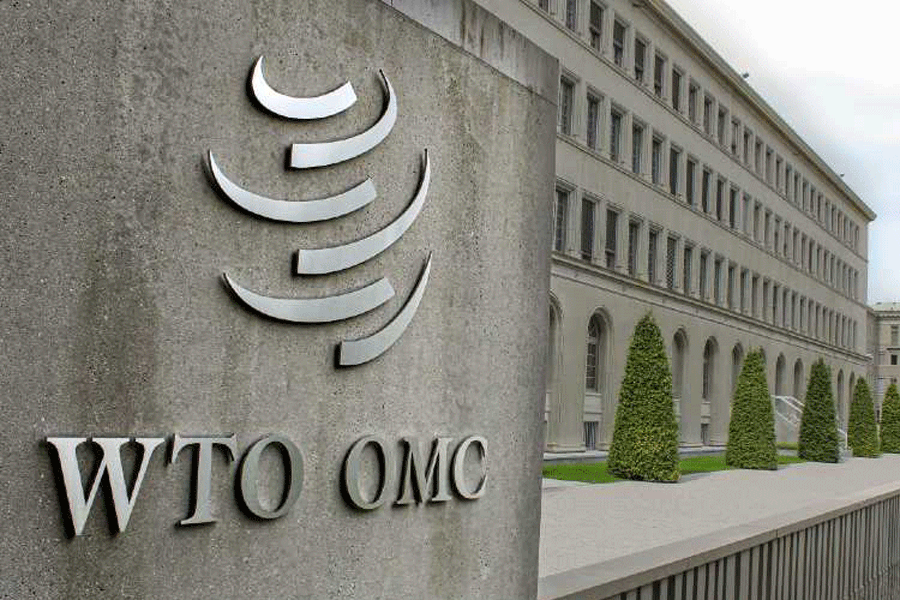Editor – Chourasia Anshul ||
In the vast ocean of international commerce, the World Trade Organization (WTO) stands as a lighthouse, guiding member nations through the turbulent waves of trade rules and agreements. Since its inception in 1995, the WTO has been instrumental in fostering a framework that facilitates the smooth exchange of goods and services among countries worldwide.
Setting the Stage: The WTO’s Role-At its core
WTO serves as a forum for member countries to engage in negotiations aimed at enhancing market access, reducing trade barriers, and fostering economic growth. Through structured discussions and consensus-building, nations come together to shape the rules that govern global trade. But the WTO is more than just a negotiation table. It boasts a robust dispute settlement mechanism, ensuring that the rights and obligations of member states are upheld. When disputes arise, the WTO acts as a referee, facilitating timely and efficient resolution to maintain the equilibrium of international trade.
Promoting Fair Play: Objectives and Functions-Regular reviews of national trade policies are another crucial aspect of the WTO’s mandate. By scrutinizing member countries’ trade practices, the organization promotes transparency and accountability, thereby fostering fair and open trade relations. Moreover, the WTO is committed to fostering inclusivity in global trade. Through technical assistance and capacity-building programs, the organization empowers developing nations to actively participate in the global marketplace. From training workshops to policy support, these initiatives aim to level the playing field and promote equitable economic development.
Harmony Amidst Complexity: Balancing Trade and Environmental Concerns-In the ever-evolving landscape of global trade, the WTO recognizes the intricate dance between economic growth and environmental sustainability. While trade policies drive prosperity, they must not come at the expense of environmental degradation. Sustainable development remains a cornerstone of the WTO’s agenda, ensuring that trade practices align with ecological stewardship.
India’s Stand: Challenging the Status Quo-
Amidst the backdrop of the WTO’s overarching objectives, India finds itself at odds with the Investment Facilitation for Development (IFD) proposal. Spearheaded by China and backed by a coalition of 130 nations, the IFD proposal seeks to streamline investment procedures, enhance transparency, and attract foreign direct investment (FDI).
However, India’s objections to the IFD proposal echo louder than the crashing waves of dissent. The crux of India’s opposition lies in the perceived deviation from the WTO’s mandate. With a primary focus on trade-related matters, India argues that investment facilitation falls outside the organization’s purview, risking the dilution of its multilateral nature.
Moreover, India raises concerns about the lack of consensus-based decision-making surrounding the IFD proposal. While plurilateral agreements are permissible under WTO regulations, India insists that negotiations on investment facilitation should take place outside the formal WTO framework, preserving the sanctity of consensus-driven decision-making.
Furthermore, India emphasizes the absence of a ministerial mandate for investment-related negotiations within the WTO structure, advocating for discussions to occur elsewhere. The looming shadow of China’s prominent role in the IFD proposal only serves to deepen India’s apprehensions, questioning whether the proposal aligns with the broader goals of the WTO and adequately considers the diverse needs of member countries.
Broader Implications: Navigating the Trade Winds- The debate surrounding the IFD proposal transcends mere policy discussions; it reflects the delicate balance between trade and investment policies on the global stage. Striking the right chord between these intertwined elements is essential for sustainable economic growth and equitable development.
Moreover, India’s staunch opposition underscores the paramount importance of preserving national sovereignty and autonomy in shaping economic policies. As countries navigate the complex waters of international trade, safeguarding these foundational principles remains imperative. Transparency and fairness are also central tenets of the debate. While proponents argue that investment facilitation enhances transparency and attracts FDI, India seeks assurances that the proposal upholds principles of fairness and equal treatment for all nations.
Charting the Course: Conclusion- India’s unwavering stand against the IFD proposal reflects its steadfast commitment to upholding the integrity of the WTO’s mandate. As the Ministerial Conference convenes in Abu Dhabi, the global community stands at a crossroads, grappling with the intricate interplay of economic development, sovereignty, and multilateral cooperation. Navigating these waters will require deft diplomacy and principled leadership. Balancing the interests of diverse stakeholders while advancing the collective goals of global trade and investment will be paramount. As the waves of change continue to shape the global economic landscape, the WTO stands as a beacon of hope, guiding nations towards a brighter and more prosperous future.















Leave a comment